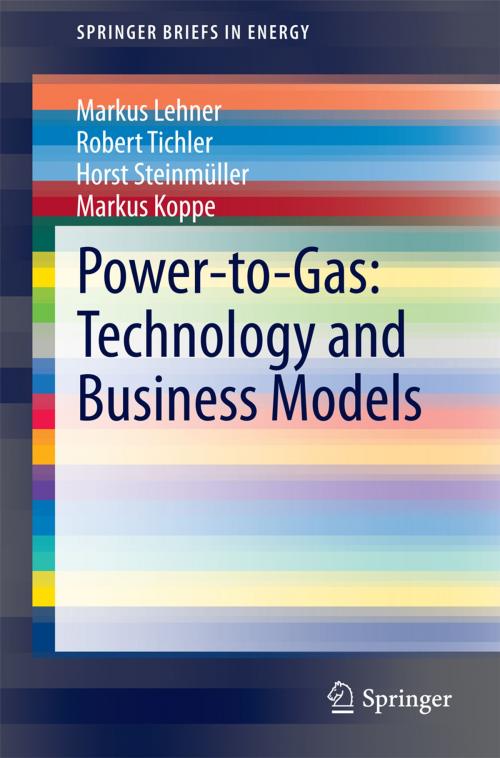Power-to-Gas: Technology and Business Models
Nonfiction, Science & Nature, Technology, Power Resources| Author: | Markus Lehner, Robert Tichler, Horst Steinmüller, Markus Koppe | ISBN: | 9783319039954 |
| Publisher: | Springer International Publishing | Publication: | July 18, 2014 |
| Imprint: | Springer | Language: | English |
| Author: | Markus Lehner, Robert Tichler, Horst Steinmüller, Markus Koppe |
| ISBN: | 9783319039954 |
| Publisher: | Springer International Publishing |
| Publication: | July 18, 2014 |
| Imprint: | Springer |
| Language: | English |
Increased production of energy from renewable sources leads to a need for both new and enhanced capacities for energy transmission and intermediate storage. The book first compares different available storage options and then introduces the power-to-gas concept in a comprehensive overview of the technology. The state of the art, advancements, and future requirements for both water electrolysis and methanation are described. The integration of renewable hydrogen and methane into the gas grid is discussed in terms of the necessary technological measures to be taken. Because the power-to-gas system is very flexible, providing numerous specific applications for different targets within the energy sector, possible business models are presented on the basis of various process chains taking into account different plant scales and operating scenarios. The influence of the scale and the type of the integration of the technology into the existing energy network is highlighted with an emphasis on economic consequences. Finally, legal aspects of the operation and integration of the power-to-gas system are discussed.
Increased production of energy from renewable sources leads to a need for both new and enhanced capacities for energy transmission and intermediate storage. The book first compares different available storage options and then introduces the power-to-gas concept in a comprehensive overview of the technology. The state of the art, advancements, and future requirements for both water electrolysis and methanation are described. The integration of renewable hydrogen and methane into the gas grid is discussed in terms of the necessary technological measures to be taken. Because the power-to-gas system is very flexible, providing numerous specific applications for different targets within the energy sector, possible business models are presented on the basis of various process chains taking into account different plant scales and operating scenarios. The influence of the scale and the type of the integration of the technology into the existing energy network is highlighted with an emphasis on economic consequences. Finally, legal aspects of the operation and integration of the power-to-gas system are discussed.















